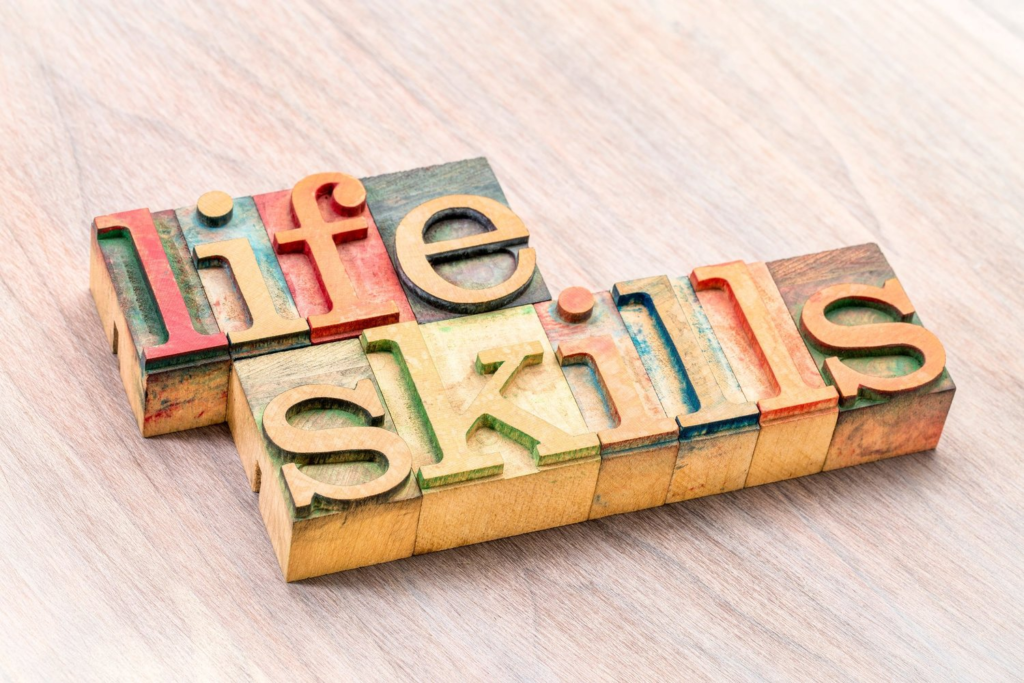Importance of life skills in the curriculum

A well-defined and progressive education policy is a must for every country because education is the cornerstone of economic and social progress. At no other time in life do children have a greater capacity to learn than during adolescence. Researchers believe this heightened learning capacity is due to the increased connectivity in the brain, which is related to the increase in intellectual capacities such as memory and reading ability. Brain development in pre-teens also leads to increased abstract thinking skills. Especially, primary education plays a decisive role as the young mind is being considered as the most productive. Education systems across the country have evolved over the years but the attention has been majorly on achieving better grades and not on improving the quality. This has, for long, encouraged a curriculum that focuses on theories and rote learning instead of life skills.
What are life skills?
The World Health Organization (WHO) has defined life skills as, “the abilities for adaptive and positive behaviour that enable individuals to deal effectively with the demands and challenges of everyday life”.
UNICEF defines life skills as “a behaviour change or behaviour development approach designed to address a balance of three areas: knowledge, attitude and skills”.
UNICEF, UNESCO and WHO list the ten core life skill strategies and techniques as problem-solving, critical thinking, effective communication skills, decision-making, creative thinking, interpersonal relationship skills, self-awareness building skills, empathy, and coping with stress and emotions. Every education system, thus, has to support the development of life skills among its learners to enable them to function effectively in society.
Outcomes of Life Skills-Based Education
Life skill education provides students with strategies to make healthy choices that contribute to a meaningful life.
Life skills bring forth the abilities that promote mental well being and competence in young people as they face the realities of life.
It helps the students to take positive actions to protect themselves and to promote healthy and meaningful social relationships.
More specifically, studies demonstrate the link between positive mental health outcomes and curricular performance in public and private schools (Miller, 2014). That is, research reveals that life skills programs are effective psychosocial intervention strategies that not only help curb risky adolescent behaviour but also promote better learning outcomes amongst them (Bardhan & Nair, 2016).
Challenges in implementation
Lack of adequate training to teachers on different aspects of life skills teaching and evaluation, inadequate teaching-learning resources and low level of preparedness of teachers are some identified challenges related to the successful implementation of Life Skills Education (LSE) in schools. Parents’ over-emphasis on academic outcomes also stands as a hurdle to achieving this goal.
Another challenge to life skills education is the non-involvement of adolescents in school events.
Inadequacy of life skills education has been visible as India accounts for 17.8 per cent of all reported teenage suicide. WHO report on ‘Mental Health Status of Adolescents in South-East Asia: Evidence for Action’ states that one in four children in the age group of 13-15 years in India suffers from depression, which affects 86 million people in the South-East Asia region. It paves the road for social problems such as sex abuse, drug abuse, juvenile crimes and anti-social acts. This new challenge requires an immediate and effective response from a socially responsible system of education.
Some organisations and Non-Governmental Organisations such as Khelplanet, Magicbus, Apnishala, Ignis and Dream a dream are working for the life skills education in various spheres.
As a program working for education, Skill in Village aims at equipping the rural students with English communication skills via life skills.
Content of the program includes the 4 Cs mentioned in the global P21 framework for 21st Century Learning – Critical Thinking, Communication, Collaboration, and Creativity with an added C to respect the context of our impact – Culture. The program also partnered with Ignis for content development. Covering 200 hrs of life skills-based language content per level per year, Skill in Village is already working for the improvement of the learning outcomes of rural learners.
It’s high time that our learning systems adopted life skills into the very essence of our curriculum. NEP’s proposal to develop a skill and application based pedagogy shows a ray of hope. It is pivotal to sustain our focus on a life-skills based learning system to nurture dynamic citizens who can cope up with the demands of an agile world.
1 ‘India ranks 37 in quality of education’, DECCAN CHRONICLE, November 2018, 2 New Education Policy (2020)
